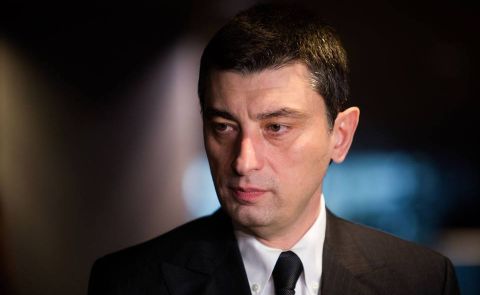
Nikol Pashinyan on Relations with Azerbaijan and Recent Meeting Between Karabakh Armenians and Baku

At a press conference on March 14, Armenian Prime Minister Nikol Pashinyan said that often in the public platforms, the preparation of the Armenian government to sign some document is presented as a negative signal. "I want to assure you that if there are 2-3 days left for the signing, this is not bad, it is actually very good news," he added.
According to him, this means progress and results in the negotiation process. "Is there a document? You know that in the middle of February, we presented our next reaction to the possible draft of the peace agreement with Azerbaijan. 2-3 days ago, we received a reaction to our project from Azerbaijan," Pashinyan emphasized.
As for progress in the document, the Prime Minister noted that some progress is visible, but with improvement, fundamental problems emerge. "First of all, we see that Azerbaijan is trying to form territorial claims to the Republic of Armenia through a possible peace agreement. This is a red line for us. Later, we see that Azerbaijan is trying to obtain a mandate for genocide or ethnic cleansing in Nagorno-Karabakh through the proposals in this text, as well as with Armenia's signature. This, of course, is a red line for us," Pashinyan stated.
Pashinyan added that the rights and security of the people of Karabakh are one of the most important issues for them, and he considers the dialogue between Baku and Khankendi/Stepanakert important.
Meetings with Karabakh Armenians were held in the headquarters of the peacekeeping contingent in Karabakh in recent days. "After these meetings, it became clear that Azerbaijan proposes to discuss the integration issue. The problem is not in the lexicon, but in its essence, in the fact that Azerbaijan does not keep its word," said Pashinyan, noting the importance of the people and government of Karabakh to determining their own destiny.
Armenian Prime Minister Nikol Pashinyan warned that the likelihood of a new escalation of tension on the Armenian-Azerbaijani border and in Nagorno-Karabakh is very high. "I am proceeding from Azerbaijan's increasingly aggressive rhetoric, and, of course, we have information from other sources," Pashinyan said. He said Azerbaijan's aggressive rhetoric and policies are the reason why Armenia invited EU civil observers to monitor its borders with Azerbaijan. "Before and after the 2020 war, Azerbaijan blamed any escalation on Armenia, and to show to our international partners that it is quite the opposite, we said we were not against sending civilian observers to the region to get information on the ground," he added.
Read also:
Karabakh and Azerbaijani Representatives Meet in Khojaly
Azerbaijan Offers Armenian Representatives from Karabakh to Meet in Baku
See Also


Russia Begins 24/7 Radiation Monitoring in Dagestan After Iranian Nuclear Incident

How Do Caucasus States React to Israel-Iran War?

Weekly Brief on Military Situation in the South Caucasus (9–15 June 2025)

Former Georgian PM Gakharia to Face Prosecution

